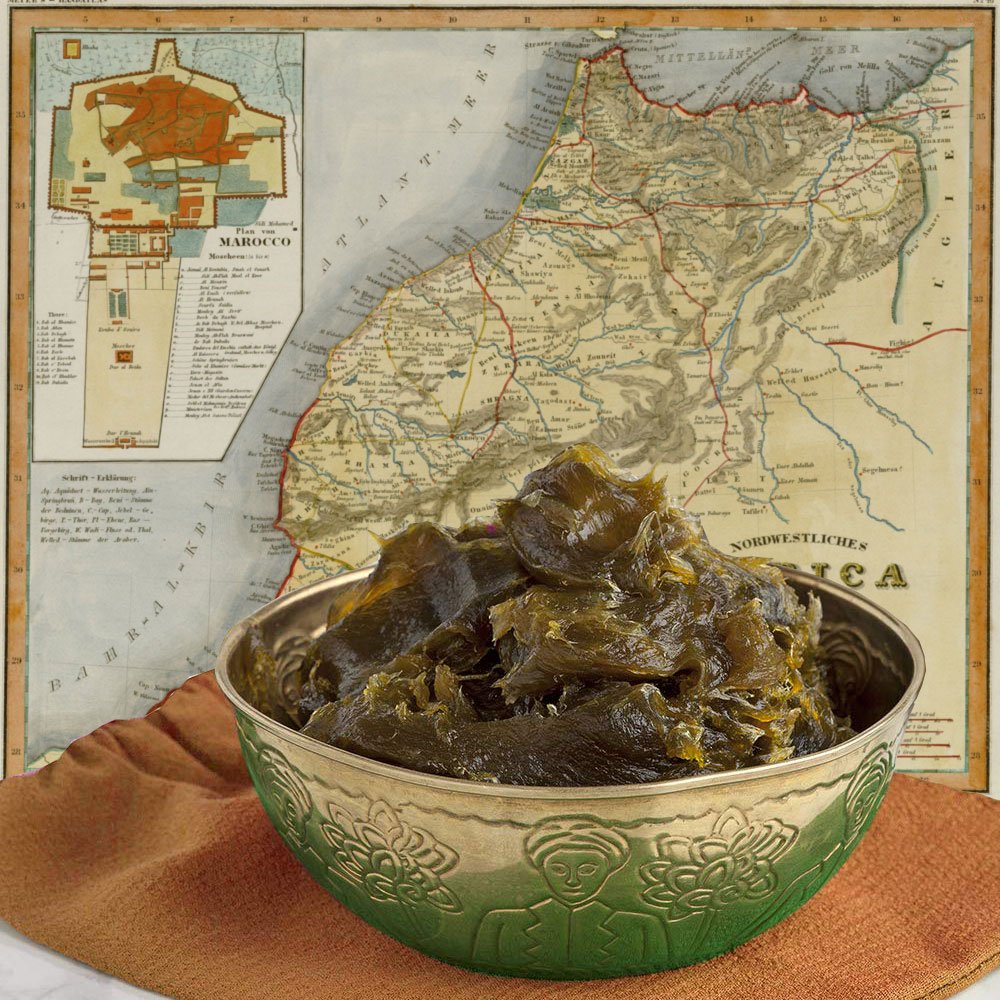Natural Moroccan Black soap has a very different texture than Aleppo and Marseille soaps. It is not in the form of a mold, but rather in the form of a soft paste. This is, of course, a soap quite similar to soap (made from animal fats and ashes) made by the Gauls in ancient times.
Black soap, according to the traditional recipe, is obtained after the cold method of saponification of two components: olive pomace (which gives it its soft texture) and olive oil obtained by traditional methods. Some recipes also mention black olive puree that has been softened with salt and turned into porridge.
Unfortunately today, traditionally produced olive oil is not used in Arab soaps, just like Aleppo and Marseille soaps. Instead, cheaper oils such as hazelnut, flaxseed, sunflower, coconut and even palm oils are now being used in its production. This situation caused the loss of the quality and original features of these soaps.
THE RIGHT CHOICE
Your choice should depend primarily on what you are going to use the black soap for. As a matter of fact, arabic soap used in cosmetics is not the same as arabic soap used in housework and gardening.
The second consists mostly of linseed oil and glycerin, which are sold in liquid or pasty form. Highly concentrated, easily soluble in water for optimum use. Choose a formulated product, preferably without additives from petrochemicals, especially if you are using it to disinfect your sinks or toilets.
Black soap used in cosmetics is sold in the form of a dark and thick paste, sometimes green or very dark brown. Traditionally, olive oil is made with savory crushed black olive pulp. Be careful about the ingredients and look for any unnecessary ingredients like perfumes or even preservatives. Note, however, that some black soaps are enriched with essential oils like eucalyptus, which are commonly used.
Finally, pay attention to the price. Real arabic is not very cheap (about 50 € per kilo). On the other hand, a very cheap black soap is likely to be fake.







Reviews
There are no reviews yet.